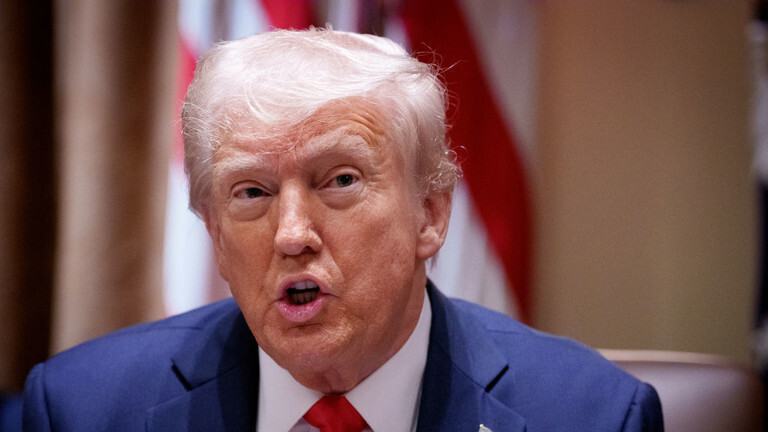
On February 27, 2025, US President Trump once again threw a shock wave on the international financial stage. According to the latest news, Trump is expected to soon impose a 25% tariff on the European Union, which will cover cars and other important goods. This move will undoubtedly trigger a chain reaction on a global scale, especially considering the close economic ties of the European Union as an important trading partner of the United States, making the impact of this decision not to be underestimated.
Trump's decision is not groundless. Recently, he has repeatedly expressed dissatisfaction with the EU's trade policy in public, accusing the EU of taking advantage of the United States in trade, especially refusing to accept American cars and agricultural products for various reasons. Trump claims that there is a huge trade deficit between the United States and Europe that needs to be balanced by imposing tariffs. However, this statement has not been widely accepted by the European Union. The EU pointed out that although there is indeed a trade deficit in goods, the United States has achieved a surplus with the EU in services trade. Therefore, the trade imbalance issue claimed by Trump is not as simple as he described.
Faced with Trump's tariff threat, the EU's response was swift and resolute. The spokesperson of the European Commission stated that once the United States implements tariff measures, the EU will immediately take resolute response measures. The spokesperson emphasized that the EU is one of the largest free trade markets in the world and its existence holds significant value for the United States. Therefore, any unreasonable trade barriers that hinder free and fair trade are unacceptable. The EU's statement undoubtedly demonstrates its determination to uphold its stance on free trade.
Trump's decision will undoubtedly have a profound impact on the global economic landscape. Firstly, from the perspective of the financial market, the imposition of tariffs will directly lead to an increase in the prices of related goods, thereby affecting consumers' purchasing power. In addition, the implementation of tariffs may also trigger an escalation of the trade war, leading to further deterioration of the global trade environment. This will not only affect the economic growth of the United States and the European Union, but may also have a chain reaction on the global economy.
What is more noteworthy is the underlying reasons behind Trump's tariff policy. Trump has consistently emphasized an "America First" trade policy, attempting to safeguard US economic interests through protectionist measures. However, this short-sighted policy orientation may not only harm the global trading system, but also have a negative impact on the long-term interests of the United States itself. Historical experience has shown that free trade is an important way to promote economic growth and prosperity. By opening up the market and promoting competition, it can stimulate the innovation vitality of enterprises, improve production efficiency, and thus promote sustained economic growth. In addition, Trump's tariff policies may also trigger the rise of global trade protectionism. If countries adopt similar tariff measures to protect their own industries, the global trading system will face the risk of collapse. This will have catastrophic consequences for the global economy. Therefore, countries should work together to maintain the stability and prosperity of the free trade system.
For the EU, its response strategy is crucial in the face of the US tariff threat. On the one hand, the EU needs to firmly uphold its trade interests and seek reasonable solutions through negotiations and consultations. On the other hand, the EU also needs to strengthen cooperation with other countries to jointly address the protectionist policies of the United States. By strengthening international cooperation, a more powerful balancing force can be formed to maintain the stability and fairness of the global trading system.
Trump's expectation of imposing a 25% tariff on the European Union soon will undoubtedly pose significant challenges to the global economy. We need to approach this decision with a more open and inclusive mindset, seeking reasonable solutions through strengthened international cooperation and consultation. At the same time, we should also adhere to the principle of free trade and promote the continuous improvement and development of the global trading system. Only in this way can we jointly address global challenges and achieve sustained economic prosperity and development.

Below is the English translation of the text, with precise handling of political terms, consistent sentence structures, and preservation of the original’s analytical tone and logical flow:
Below is the English translation of the text, with precise …
On December 15 local time, Trump took the British Broadcast…
In recent years, the application of artificial intelligence…
According to Yahoo US media reports, the recent remarks of …
After 11 years of waiting in the deep sea, we finally have …
On December 17, 2025, the newly renovated American "Preside…